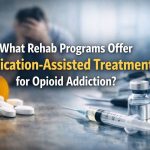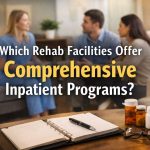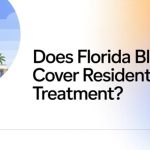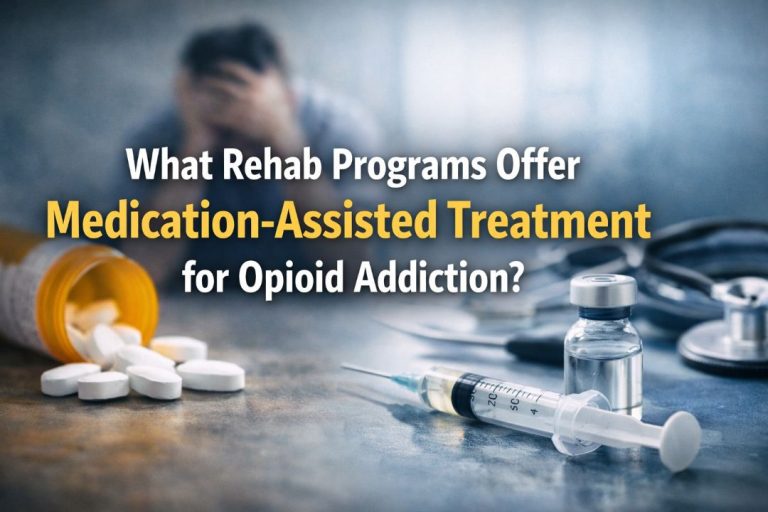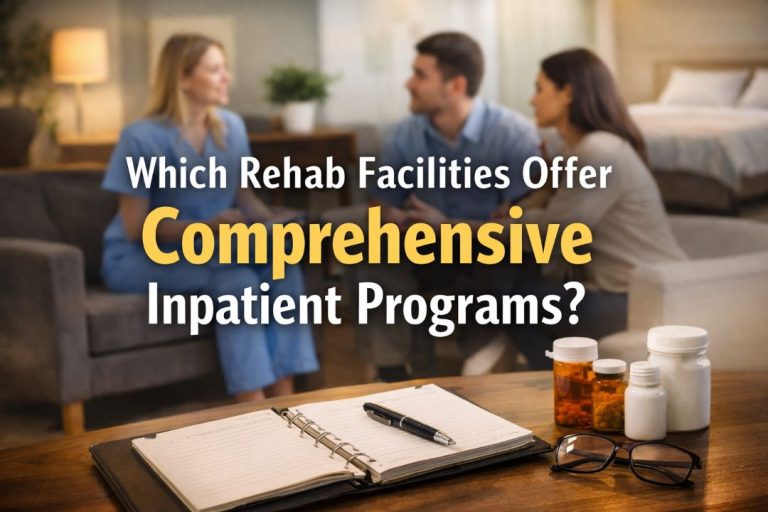Post-traumatic stress disorder (PTSD) is a severe mental issue that arises following an event or experience that causes trauma to a person or those near him. It may strike anyone irrespective of their age, sex, or origin and in most cases, it influences the daily life, relationships and the general well being. Being aware of the symptoms of PTSD and getting good diagnosis and treatment are the necessary steps on your way to recovery and rebuilding your life.
We know how deeply trauma may be experienced by the mind and by the body at Solutions Healthcare. Through evidence-based treatment of PTSD, our caring staff offers evidence-based treatment to assist individuals in finding peace, strength, and a permanent remedy.
What is Post-Traumatic Stress Disorder?
So, what is PTSD exactly? PTSD is a mental disorder that comes about following incidents or encounters of life-threatening or disturbing incidents or experiences, including natural calamities, war, severe accidents, physical or sexual assault, or the unforeseen loss of a family member or loved one.
By the time a person gets PTSD, the brain and body are already in the high level of alert, although the danger is now gone. This prolonged stress reaction can cause flashbacks, nightmares, emotional numbness and hypervigilance.
It also exists in a more severe variant, which is referred to as complex PTSD (C-PTSD), which is frequently predetermined by prolonged or repeated trauma, including continuous abuse or neglect. Individuals with C-PTSD can have problems with emotional control, self-esteem and relationship maintenance.

Symptoms of Post-Traumatic Stress Disorder
The symptoms of PTSD may be different in every individual, however, they are usually divided into four categories:
Intrusive memories:
- Familiarity, unwanted remembering of the traumatic event.
- Living the traumatic experience over and over again or flashbacks.
- Tormenting dreams or nightmares.
- Emotional pain or physical reactions to the memories of the trauma.
Avoidance:
- Avoiding things, persons or situations that are a reminder of the event.
- Denying the fact of the trauma.
Negative changes in thinking and mood:
- Never negative self-talk or self-talk.
- Despair, guilt or shame.
- Trouble retaining notable points of the traumatic experience.
- Loss of pleasure in previously liked activities.
- numbness of the dissociation or emotional numbness.
Changes in physical and emotional reactions:
- Easily scared or frightened.
- Never at peace or relaxed.
- Insomnia or lack of concentration.
- Self-harm, including drug abuse.
In case you or someone that you love is having these PTSD symptoms, you should seek the assistance of a professional mental health counselor. Interventional early intervention may be a promising factor in recovery.
100% Confidential Support is Available 24/7
No matter what you’re going through, you’re not alone. Our dedicated team is here to provide a safe, judgment-free space where you can talk openly and honestly. Whether you need emotional support, resources, or just someone to listen.
We’re here for you—completely confidential and always respectful of your privacy. Call us today!
Diagnosis
PTSD diagnosis is a sensitive matter that should be done by a qualified mental health practitioner. The steps involved generally include:
- Clinical Interviews: This entails a therapist or psychiatrist discussing your experience with you, symptoms and emotional history.
- Diagnostic Criteria: Diagnosis of PTSD is based on the standards of Diagnostic and Statistical Manual of Mental Disorders (DSM-5).
- Duration of Symptoms: The patient must have lasted over one month with the symptoms and be making him or her really upset and inconvenienced.
- Screening Tools: Clinicians can apply special questionnaires or assessment instruments and detect complex PTSD and distinguish it with other disorders such as depression or anxiety.
One should bear in mind that it is not a weakness, but a natural reaction to excessive trauma which results in PTSD. The first step towards healing is the right diagnosis.
Contact Solutions Healthcare
Battling with Drug and Alcohol Addition? Remember, you are not alone and we are here to help you!
Treatment for PTSD
The positive aspect is that PTSD therapies are very effective. There are numerous cases when a person can improve the quality of life and reduce the symptoms with the appropriate treatment and care. The most typical methods of therapy approaches used in PTSD include:
1. Psychotherapy (Talk Therapy)
This forms the basis of treatment of PTSD. Some of the most effective forms of therapy are:
- Cognitive Behavioral Therapy (CBT): Helps in the identification and the reformation of negative thoughts.
- Prolonged Exposure Therapy (PE): This is used to eliminate the fear gradually by approaching the memories and triggering the trauma in a safe environment.
- EMDR: This is utilized as an eyemovement desensitization and reprocessing (EMDR) to assist in the processing of traumatic memories.
- Trauma-Centered Therapy: These focus on the memory of the trauma and the emotional impact of the trauma.
2. Medication
The antidepressants, like the SSRIs ( Selective serotonin reuptake inhibitors ), which have gained prominence in regulating mood and curbing anxiety, are sertraline ( zoloft ) and paroxetine.
3. Holistic and Complementary Therapies
Besides conventional treatment, holistic treatment may provide healing value via the establishment of emotional balance and physical health:
- Yoga and mindfulness
- Art and music therapy
- Breathing and meditation
- Community-based healing Support groups.
4. Complex PTSD Treatment
Complicated PTSD is a condition that can be successfully helped by long-term therapy that incorporates the focus on traumas with the ability to regulate emotions and act in interpersonal relationships.
Recovery is possible but healing of PTSD is time consuming, patient and requires professional guidance.
Care at Solutions Healthcare
We provide evidence-based care in a compassionate manner at Solutions Healthcare where we are aiming at serving the needs of the clients on an individual basis. The team of senior clinicians specializes in the treatment of this mental disorder and the use of trauma-informed therapies to ensure that clients can safely work through and process their experiences and reestablish a sense of security.
Our approach includes:
- In-depth evaluations that can be done to know the whole effects of trauma.
- Customized intervention of care such as psychotherapy, pharmaceutical treatment, and holistic treatment.
- Safety, receptive conditions under which recovery can be initiated.
- Continuous post-recovery and relapse prevention to guarantee permanent recovery.
In case you or a person around you is going through trauma or PTSD, keep in mind – you are not alone. There is an emergency, and the process begins with a single phone call.
Take the First Step Toward Healing
You need not struggle with the PTSD.With the help of the expert and the treatment of care, one can be restored.
You can even call Solutions Healthcare and do the very own treatment process by calling (386) 866-3600.
100% Confidential Support is Available 24/7
No matter what you’re going through, you’re not alone. Our dedicated team is here to provide a safe, judgment-free space where you can talk openly and honestly. Whether you need emotional support, resources, or just someone to listen.
We’re here for you—completely confidential and always respectful of your privacy. Call us today!
FAQs
1. What are the 5 signs of PTSD?
The five most familiar signs are flashbacks, nightmares, avoiding reminders, emotional numbness, and hyperarousal (feeling on the edge of his seat all the time).
2. What is the best treatment for PTSD?
Treatment approaches are the most effective ones which include trauma-based therapies (EMDR, Cognitive Behavioral Therapy (CBT), and Exposure Therapy) accompanied by medication and holistic care.
3. How does PTSD affect daily life?
Work, relationships, and sleep are some of the elements that PTSD can interrupt to a very difficult time to focus on or be safe. It may also result in depression, anxiety and isolation in case it is not treated.
4. How did I heal my PTSD naturally?
Other individuals are relieved by natural techniques such as mindfulness, exercise, journaling, and meditation. Nevertheless, full recovery is highly prescribed to professional treatment of PTSD.
5. Is PTSD considered a mental illness?
Yes, PTSD is considered a mental illness that is induced by traumatic experiences. Through good therapy, it can be cured.








